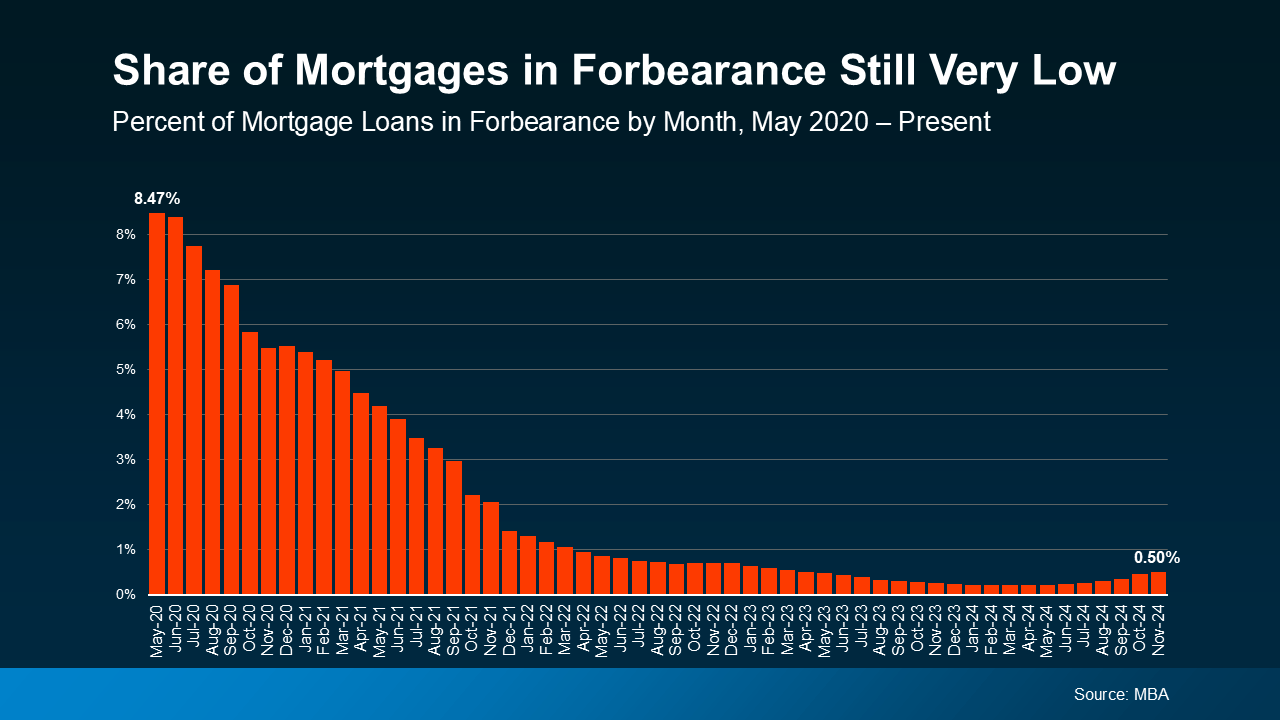Mortgage Forbearance: A Lifeline for Homeowners in Financial Crisis

Life is full of surprises, and not all of them are good. Job loss, mounting medical bills, or even natural disasters can leave anyone struggling to keep up with their mortgage payments. If you're a homeowner feeling the weight of financial uncertainty, you're not alone. And here's something you might not know – mortgage forbearance can offer you the breathing room you need when things feel overwhelming.
But what exactly is mortgage forbearance, and how can it help you in your time of need? Let’s break it down.
What Is Mortgage Forbearance and How Can It Help?
Mortgage forbearance is a financial tool that allows homeowners to temporarily reduce or pause their mortgage payments while they navigate through a financial hardship. Whether you’re facing an unexpected crisis, like a sudden illness, job loss, or even a natural disaster, forbearance can provide the time and space to get your finances back in order.
Bankrate defines mortgage forbearance as an option that allows borrowers to “pause or lower their mortgage payments while dealing with a short-term crisis.” In short, it’s a way for you to keep your home and avoid falling into delinquency when times are tough. It’s not a long-term solution, but it can offer immediate relief when you're dealing with a financial storm.
Mortgage Forbearance Is Not Just for Times of Crisis
Many people mistakenly believe that mortgage forbearance was a tool introduced only during the COVID-19 pandemic. While it’s true that the pandemic created significant financial challenges for millions, forbearance was not just a temporary fix. In fact, it remains a valuable resource for homeowners today. Forbearance programs still exist to help those who face unexpected hardships and are struggling to make ends meet.
Even though the forbearance program may have seen its highest usage during the height of the pandemic, it’s still available as a lifeline for homeowners in financial distress. If you’re currently facing tough times or an emergency, forbearance can provide the opportunity to pause your payments and recover financially without the risk of losing your home.
The State of Mortgage Forbearance Today
It’s important to keep an eye on the current state of mortgage forbearance, as it can help you understand how this option is evolving and when it’s most useful. While the overall number of mortgages in forbearance has decreased significantly from its peak in 2020, there has been a slight uptick in recent months. In fact, mortgage forbearance rates rose slightly by three basis points in November, marking a six-month streak of increases.

At first glance, this might seem alarming. However, a closer look reveals that the recent increases are tied to specific causes, such as the aftermath of hurricanes Helene and Milton. Natural disasters often lead to temporary financial struggles, making forbearance a critical tool for those recovering from such events. For example, about 46% of homeowners currently in forbearance attribute their struggles to the financial impact of natural disasters.
Despite this recent uptick, the overall number of mortgages in forbearance remains a small fraction of the housing market, far from the levels seen during the peak of the pandemic. This is a sign that forbearance is still serving its purpose as a temporary safety net for those who truly need it.
Why Mortgage Forbearance Matters
You might be wondering, why should you even consider mortgage forbearance? Forbearance matters because it can prevent the downward spiral of missed mortgage payments and eventual foreclosure. The last thing you want is to fall behind on your payments and watch your home slip away. With forbearance, you have the opportunity to catch your breath, reassess your financial situation, and come up with a solid plan to move forward.
It’s important to note that forbearance is not a “get out of jail free card.” It doesn’t mean your mortgage debt disappears. However, it gives you a break from immediate payments so you can focus on other pressing matters, like finding a new job or sorting out a medical crisis. During this time, you can work with your lender to create a repayment plan that suits your new financial reality.
And while it’s true that most homeowners aren’t currently relying on forbearance due to the strong equity in today’s housing market, it’s still a valuable option for those who are in temporary financial distress. Whether it’s due to a personal emergency, a major life event, or unforeseen circumstances, forbearance can offer the space needed to regroup.
How to Apply for Mortgage Forbearance
If you find yourself in need of forbearance, the first step is to reach out to your mortgage lender. Forbearance isn’t automatically granted – you’ll need to apply and discuss the terms with your lender. Your lender will guide you through the process, explain the requirements, and help you understand how the forbearance agreement will affect your future payments.
It’s important to act quickly if you think you may need forbearance. The earlier you start the process, the more options you may have. Be sure to ask your lender about the duration of the forbearance period and how repayment will work once the forbearance ends.
Understanding the Impact of Forbearance on Your Credit
One of the major concerns homeowners often have when considering forbearance is how it will affect their credit. The good news is that as long as you’re approved for forbearance, your credit report won’t reflect missed payments during the forbearance period. Lenders are required to report that the forbearance is in place, which means it won’t harm your credit score.
However, once your forbearance period ends, you'll need to catch up on any missed payments, either by extending your loan term or paying back the deferred amount. It’s important to note that this might temporarily affect your monthly payments, but it shouldn’t lead to any long-term credit issues as long as you stay in touch with your lender and keep up with your payment plan.
Mortgage Forbearance: A Lifeline for Homeowners in Difficult Times
When it comes down to it, mortgage forbearance is more than just a financial tool – it’s a lifeline. Whether you're dealing with a temporary setback or a major life crisis, forbearance offers the breathing room you need to avoid foreclosure and regain control over your finances.
While the increase in forbearance rates might make headlines and cause concern, it’s important to remember that forbearance is working as intended. It’s helping those who need it most – homeowners facing temporary financial hardships – to stay afloat and get back on track.
In tough times, knowing your options can bring peace of mind. If you or someone you know is struggling with mortgage payments, don’t hesitate to reach out to your lender and explore the option of forbearance. It could be the key to keeping your home and regaining financial stability.
Bottom Line: Don’t Wait – Take Action Now
If you’re facing financial hardship, the best thing you can do is take action. Mortgage forbearance can provide the space and time you need to recover without the fear of losing your home. So don’t wait for the situation to get worse – reach out to your lender, explore your options, and take control of your financial future. You have the power to make it through, and mortgage forbearance could be the first step toward a brighter, more secure tomorrow.
Recent Posts










GET MORE INFORMATION
